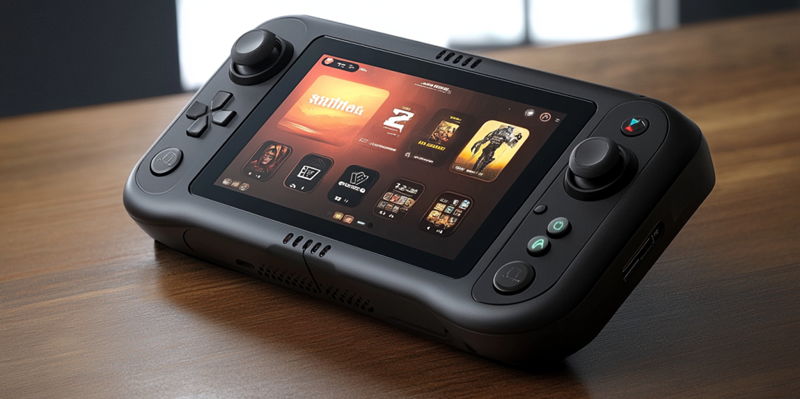Valve Corporation’s recent steps toward integrating ARM64 compatibility into its Proton compatibility layer have sparked intense conversations within the tech community about the possibility of an ARM-based Steam Deck. Proton, which has gained recognition for enabling Windows games to run seamlessly on Linux OS, is now reportedly being adapted for ARM64 platforms. This adaptation was identified through a SteamDB test application detail, intriguingly mentioned as “proton-arm64ec.” These developments suggest that ARM System-on-Chip (SoC) designs might soon find their way into gaming handhelds, potentially redefining the landscape of portable gaming devices.
ARM Influence on Steam Deck’s Prospects
One primary interpretation of Valve’s intentions is that the company could be planning to revamp the Steam Deck using ARM architecture to leverage ARM’s growing influence in the PC market. Recent advancements by Qualcomm, particularly the Snapdragon X Elite SoCs, have been notable for their exceptional AI capabilities and energy efficiency. These advancements have spurred increased adoption of ARM architectures within Windows PCs and other computing devices. If Valve were to utilize ARM in their handheld gaming devices, it would represent a significant pivot from their traditional reliance on x86 architecture. This transition could open new avenues in terms of device performance, battery life, and streamlined hardware design, ultimately making the Steam Deck more competitive and appealing to a broader audience.
The adoption of ARM would not only diversify the Steam Deck’s technical underpinnings but also align it with industry trends emphasizing efficiency and AI integration. ARM architectures’ inherent advantages, such as reduced power consumption and enhanced processing capabilities, could lead to more sustainable and powerful gaming experiences. Moreover, as consumer demand for high-performance, portable gaming solutions continues to rise, ARM-based Steam Decks could cater precisely to these market needs. This strategy could help Valve to maintain its competitive edge against other gaming giants venturing into the portable gaming domain.
Platform Enhancement or Market Disruption?
Another plausible interpretation of Valve’s recent moves is that the development aims to provide broader compatibility for ARM SoCs within Steam’s ecosystem. This could be part of a routine platform enhancement to make Proton more versatile and inclusive, allowing it to support a wider array of hardware configurations. Enabling cross-compatibility features for existing and future ARM-focused handheld devices would significantly broaden Proton’s reach. However, this might also dilute the unique market position of the Proton compatibility layer, which has historically been synonymous with bridging Windows games to Linux environments using x86 architecture.
Broadening Proton’s compatibility could create a more inclusive gaming ecosystem, attracting developers and gamers interested in diverse hardware setups. Nonetheless, this strategy could also blur the lines of Proton’s market identity. While more versatile in supporting ARM architectures, Proton would no longer be a niche solution exclusive to x86-based systems. This could either enhance its popularity or challenge its distinctiveness, depending on how the market responds to these changes. The duality of these potential outcomes underscores the complexity of Valve’s strategic decisions.
Future Prospects and Speculative Excitement
Valve Corporation’s recent moves to incorporate ARM64 compatibility into its Proton compatibility layer have ignited significant discussion among tech enthusiasts regarding the potential for an ARM-based Steam Deck. Proton, known for its capability to run Windows games effortlessly on Linux OS, is now being modified for ARM64 platforms. This initiative was discovered through a SteamDB test application detail labeled “proton-arm64ec.” These strides imply that ARM System-on-Chip (SoC) designs could soon be featured in gaming handhelds, marking a possible shift in the realm of portable gaming devices.
With such modifications, the gaming experience on these handhelds could become more efficient and possibly elevate overall performance. The integration of ARM technology into a Steam Deck would not only expand hardware options but also cater to a diverse array of user preferences, potentially leading to greater market competition and innovation. By adapting Proton to ARM64, Valve is likely paving the way for more versatile and high-performing gaming systems, possibly making these handhelds more appealing to a broader audience.

